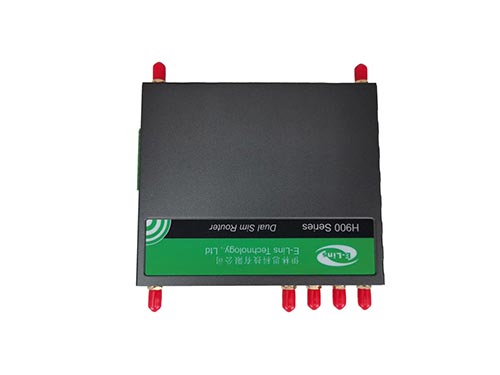Can you connect Ethernet to a 5G router?
Oct 30,2024 | Views: 339
Yes, you can typically connect Ethernet to a 5G router. Here's some more information about this:
1. 5G Router Ports:
Most 5G routers come equipped with Ethernet ports. These allow you to connect devices directly to the router using an Ethernet cable.
2. Advantages:
- Stability: Wired connections are generally more stable than wireless.
- Speed: Ethernet connections can often provide faster speeds than Wi-Fi, depending on the specific router and Ethernet cable used.
- Lower latency: Wired connections typically have lower latency than wireless.
3. Number of Ports:
The number of Ethernet ports can vary. Some routers might have one or two, while others could have four or more.
4. Port Speed:
Check the specifications of your router. Most modern routers support Gigabit Ethernet (1000 Mbps), but some may only support Fast Ethernet (100 Mbps).
5. Use Cases:
Connecting via Ethernet is ideal for devices that need a stable, fast connection, such as desktop computers, gaming consoles, or smart TVs.
6. Compatibility:
Ensure your device has an Ethernet port. Many modern ultra-thin laptops may require an adapter.
7. Cable Type:
Use at least a Cat5e Ethernet cable for best performance, especially if your router supports Gigabit speeds.
8. Configuration:
Usually, no additional configuration is needed. Most routers will automatically recognize the Ethernet connection.
Remember, while you can connect via Ethernet, the overall internet speed will still be limited by your 5G connection speed and plan.
If you're considering purchasing a 5G router and Ethernet connectivity is important to you, make sure to check the router specifications for the presence and number of Ethernet ports.
Prev: Is there a dual SIM router?
Next: What is the 5G Ethernet port for?
1. 5G Router Ports:
Most 5G routers come equipped with Ethernet ports. These allow you to connect devices directly to the router using an Ethernet cable.
2. Advantages:
- Stability: Wired connections are generally more stable than wireless.
- Speed: Ethernet connections can often provide faster speeds than Wi-Fi, depending on the specific router and Ethernet cable used.
- Lower latency: Wired connections typically have lower latency than wireless.
3. Number of Ports:
The number of Ethernet ports can vary. Some routers might have one or two, while others could have four or more.
4. Port Speed:
Check the specifications of your router. Most modern routers support Gigabit Ethernet (1000 Mbps), but some may only support Fast Ethernet (100 Mbps).
5. Use Cases:
Connecting via Ethernet is ideal for devices that need a stable, fast connection, such as desktop computers, gaming consoles, or smart TVs.
6. Compatibility:
Ensure your device has an Ethernet port. Many modern ultra-thin laptops may require an adapter.
7. Cable Type:
Use at least a Cat5e Ethernet cable for best performance, especially if your router supports Gigabit speeds.
8. Configuration:
Usually, no additional configuration is needed. Most routers will automatically recognize the Ethernet connection.
Remember, while you can connect via Ethernet, the overall internet speed will still be limited by your 5G connection speed and plan.
If you're considering purchasing a 5G router and Ethernet connectivity is important to you, make sure to check the router specifications for the presence and number of Ethernet ports.

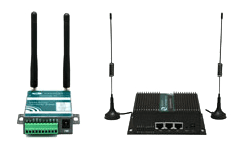 Networking
Networking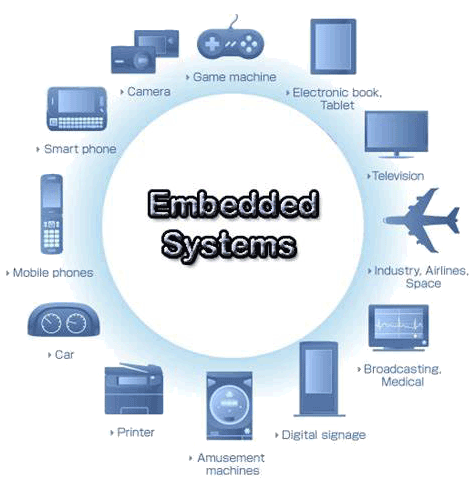 EMBEDDED SYSTEMS
EMBEDDED SYSTEMS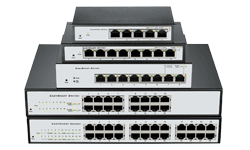 Switches
Switches Wireless Solutions
Wireless Solutions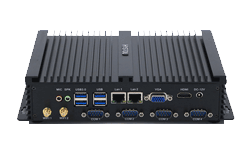 Industrial Computer
Industrial Computer Cloud Services
Cloud Services
